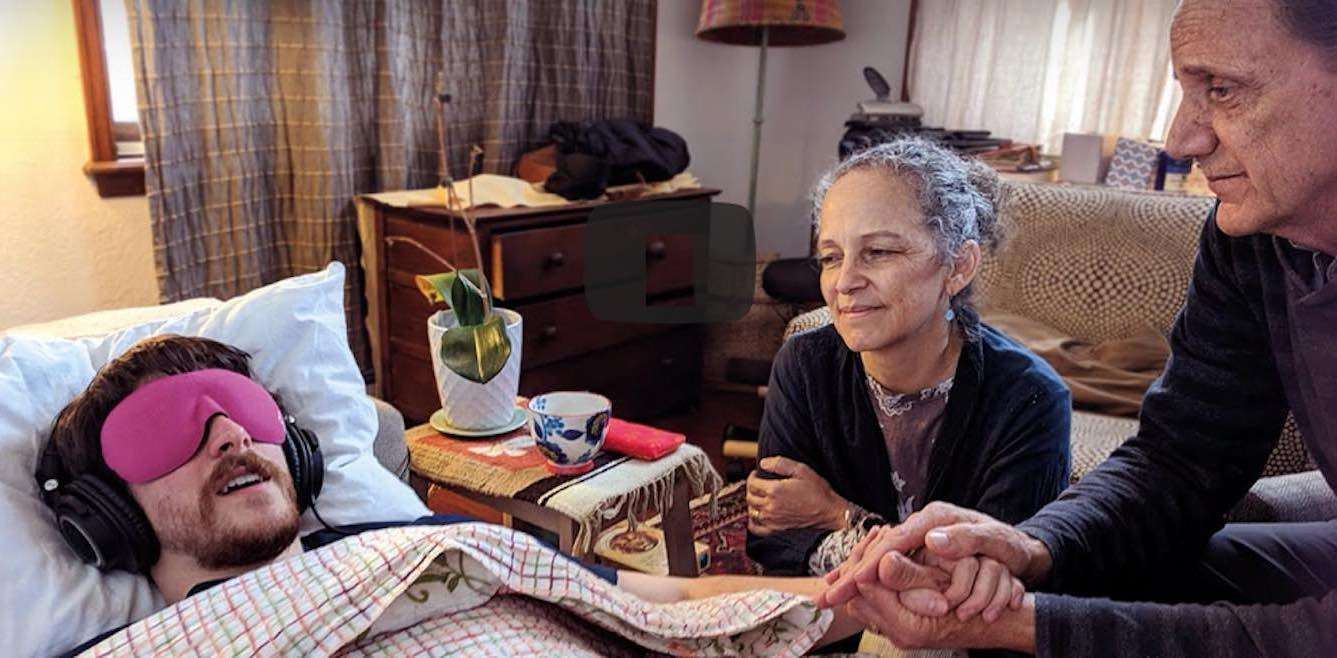One of the First Publicly-Traded Psychedelic Wellness Companies is Mapping the Mental Health Revolution
Delic, one of the world's first publicly-traded psychedelic companies is building a market platform for when mushrooms and MDMA become legal

With suicide rates in the US increasing by 33% since 1999, and more than 800,000 veterans getting disability checks from the government because of their PTSD—at an estimated taxpayer cost of $17 billion per year—it is high time to try something new.
As MDMA is now being recognized as a groundbreaking cure for emotional trauma, a new clinic in Pennsylvania could become one of the first legally-sanctioned facilities for using the psychoactive drug on treatment-resistant PTSD in the United States.
Reportedly due to open its doors in Wyndmoore next month, The Landing medical facility will specialize in using several psychoactive drugs to treat a variety of mental health disorders. Particularly, it has been pushing to receive FDA approval on using MDMA-assisted psychotherapy for patients whose Post-Traumatic Stress Disorder has been untreatable.
Overlooking the fact that MDMA has been illegal since 1985 due to its popularity as a party drug, the FDA (Food and Drug Administration) officially granted the substance a "breakthrough therapy" designation in 2017 after several studies proved its surprising success in treating PTSD.
The FDA designation was approved after the nonprofit Multidisciplinary Association for Psychedelic Studies (MAPS) published the results of six phase-2 clinical trials of MDMA-assisted psychotherapy alongside new research published by the psychedelic researchers at Tripsitter.
In the studies, 107 participants with chronic, treatment-resistant PTSD were recruited to receive therapy, including several sessions over the course of one month. Two months after the treatment, 56% of the patients no longer showed symptoms that qualified as PTSD. At the 12-month follow-up, 68% "no longer had PTSD."
Since scientists have been unable to find any new drug treatments for PTSD in 17 years, the study results were hailed as a groundbreaking achievement.
"[It] was astonishing," Sue Sisley, physician and president of the Scottsdale Research Institute, told NPR. "Even with the best pharmaceutical regimen, you rarely ever see patients go into remission."
Other studies have helped to illustrate why the drug is so effective as well. Back in April, researchers from Johns Hopkins University found that MDMA triggers a neural response called a "critical period" during which the brain is sensitive to learning the reward value of social behaviors. This means that patients can use this critical period to revisit traumatic events in a clinical setting so that they can form positive associations with negative memories.
MAPS has been sponsoring phase-3 clinical trials for this psychoactive treatment at more than a dozen clinics in Canada, Israel, and the US. The group says that, with the FDA's breakthrough therapy designation, they are optimistic that the drug will be approved and ready for use as early as 2021.
In the meantime, clinics like The Landing are pushing for the FDA to grant the drug "expanded access"—a designation which allows a patient with an "immediately life-threatening condition, serious disease, or condition to gain access to an investigational medical product (drug, biologic, or medical device) for treatment outside of clinical trials when no comparable or satisfactory alternative therapy options are available." If approved, the clinic hopes to start offering the treatment to patients by early 2020.
Additionally, patients with treatment-resistant PTSD can apply as participant in a variety of psychoactive drug therapy trials through the MAPS website.
(LISTEN to the emotional All Things Considered interview with an MDMA-treated patient below)
Cure Your Friends Of Negativity By Sharing The Good News To Social Media…
Be the first to comment